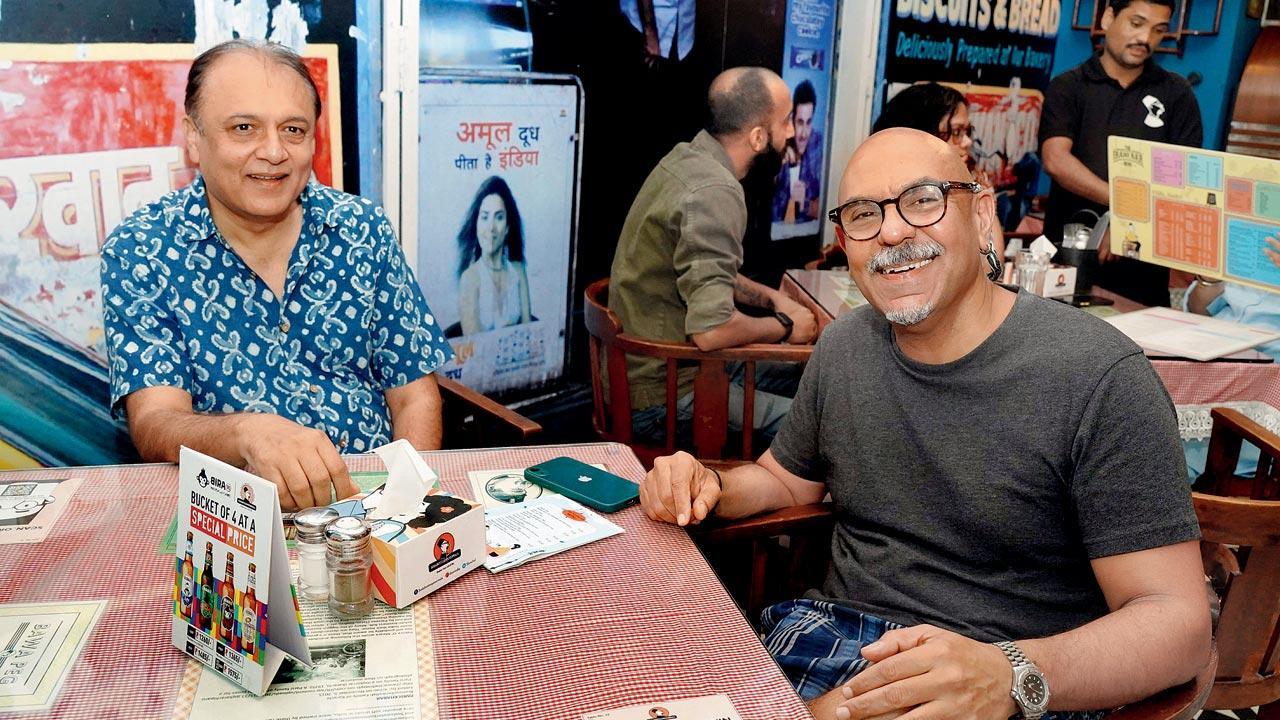‘Bombay is still a forgiving, less judgemental city’
Updated On: 17 September, 2023 06:40 AM IST | Mumbai | Meher Marfatia
Consultant chef Irfan Pabaney and education entrepreneur Rajiv Shah enjoy a relaxed yet vital vibe
Listen to this article :

Rajiv Shah and Irfan Pabaney catch up at SodaBottleOpenerWala, BKC. Pic/Aishwarya Deodhar
 Irfan Pabaney, 56, Country head, SodaBottleOpenerWala
Irfan Pabaney, 56, Country head, SodaBottleOpenerWala
Rajiv Shah, 56, CEO, NMIMS Global Access School
Read Next Story



